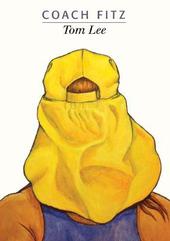
|
Coach Fitz
Paperback / softback
Main Details
| Title |
Coach Fitz
|
| Authors and Contributors |
By (author) Tom Lee
|
| Physical Properties |
| Format:Paperback / softback | | Pages:256 | | Dimensions(mm): Height 210,Width 148 |
|
| Category/Genre | Modern and contemporary fiction (post c 1945) |
|---|
| ISBN/Barcode |
9781925336900
|
| Audience | |
|---|
|
Publishing Details |
| Publisher |
Giramondo Publishing Co
|
| Imprint |
Giramondo Publishing Co
|
| Publication Date |
1 August 2018 |
| Publication Country |
Australia
|
Description
Tom Lee is one of Sydney Morning Herald's Best Young Australian Novelists 2019 One of the strangest and most appealing novels you will read this year! Tom Lee's first novel is about a young jogger who is in a relationship with an older woman. She is both his coach and his mentor. Coach Fitz, as he calls her, seeks to instil a philosophy of running which combines 'controlled intensity' with a curiosity about places and their histories. A country boy, he is fascinated by the landscapes of the city beaches and parks through which they travel. And he has his own obsessions - with exercise routines, ancestral legacies, outdoor gyms, horse-racing, weather conditions and inner-city eating habits. Then, suddenly, their relationship falls apart, over the issue of sex - and he becomes a coach and mentor in turn, to a young man this time, as he attempts to orchestrate an ideal expression of his emotional, athletic and intellectual urges. Coach Fitz is an exploration of the outdoor mentality that plays such a dominant role in the Australian psyche. It is remarkable for its observations about landscape and physical exercise, embedded in the training routines and dialogues of the runners. But most of all it is about the emotions and aspirations of youth, and the complications these engender. 'This quirky debut novel by Tom Lee is a wonderfully strange patchwork of psychobabble, self-help buzzwords and technocratic jargon...There's an easy matter-of-factness here, a flatness of affect reminiscent of the work of Gerald Murnane.' - The Saturday Paper
|